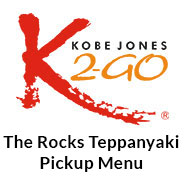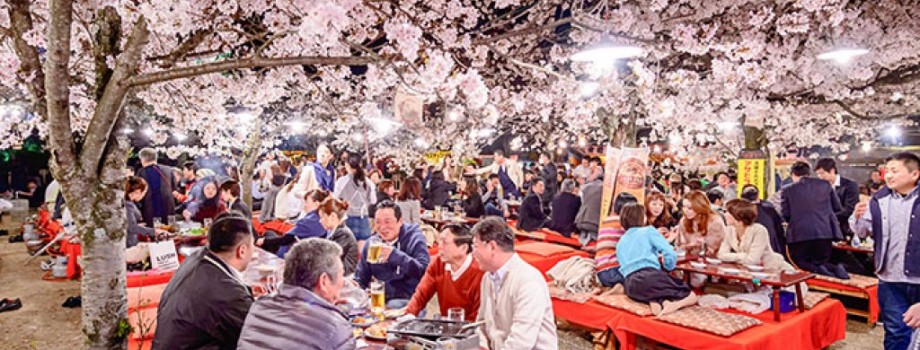It has long been known that the Japanese love proverbs, often citing just the first part of common phrases for brevity. Many of the most common Japanese proverbs used are derived from agricultural customs and practices, with traditional Japanese culture being heavily tied to farming and cultivation. A good example of this is the widely used proverb, “The heavier the head of rice, the deeper it bows,” which serves as a metaphor for humility, a virtue the Japanese hold dear.
Japanese proverbs are called Kotowaza in Japan, and while some are exported from Chinese proverbs, many aren’t too different from those used in the English language. To be classed as a proverb, the saying must be memorable, short and state a general truth or piece of advice.
When it comes to food, there are many Japanese proverbs that depict the culture surrounding the dinner table. Among the favourites are:
“It is the man who drinks the first bottle of sakè, then the second bottle drinks the first, and finally it is the sakè that drinks the man.” or “With the first glass a man drinks wine, with the second the wine drinks the wine, with the third glass the wine drinks the man.”
Translation: Stay in control. Drink too much and it becomes a problem.
“Eat it raw before all else, then grill it, and boil it last of all.”
Translation: Let no aspect of Japanese cuisine get overlooked. Consider everything – flavours, textures, colours, overall composition and presentation.
“Stomach skin stretching – eye skin sagging.”
Translation: A belly full of gluttony will never study willingly.
“Wishing to eat the fugu, but wishing to live too.”
Translation: There is risk in some actions and it is wise to express concern about certain outcomes.
“Luck exists in the leftovers.”
Translation: There is luck in the last helping.
“He who has his stomach full only 80% will not need a doctor.”
Translation: Calorie restriction can extend one’s life. (Derived from hara hachi bu practices.)
“Even sea bream is not delicious when eaten in loneliness.”
Translation: It is not what you eat, but who you eat it with that matters.
“Melon field, under a plum tree.”
Translation: Avoid actions that could be taken on bad faith, such as the misunderstanding that you want to steal the fruits of the melon field and plum tree.
“One Japanese plum a day is an escape from that one day struggle.”
Translation: Discomfort caused by struggle can be healed by just one piece of happiness.
“Can’t eat a painted cake.” or “You can’t eat the mochi in the picture.”
Translation: Do not spend your days daydreaming about fantasies. No matter how good the imagination, reality is what counts.
“There are even bugs that eat knotweed.”
Translation: There’s no accounting for taste – to each his own.
“Spilt water will not return to the tray.”
Translation: There’s no use crying over spilt milk. Move on from what can’t be undone. A separated couple can never go back to the way they were.
“Fish to a cat.”
Translation: Don’t let your guard down for a second or the cat will steal your fish.
“Don’t let your daughter-in-law eat your autumn eggplants.”
Translation: Don’t let yourself be taken advantage of.
“Rice cakes at the rice cake store.”
Translation: Things are done best when they’re done by the professionals.
“Dumplings over flowers.”
Translation: Prefer practical gain over aesthetics.
“To eat an outsider’s food.”
Translation: To move out into the world of individual hardships. (In reference to children moving out once married.)
“Pulling water to my own rice paddy.” or “To draw water into one’s own rice field.”
Translation: Behave in a way to benefit yourself. Don’t let others do the work for you.
“A samurai, even when he has not eaten, uses his toothpick.”
Translation: A samurai must always wield pride and martial spirit.
“Even rotten sea bream is sea bream.”
Translation: Whether it’s of high quality or not, a delicacy will always be considered of value.
Whether relating directly to food or merely mentioning it as a metaphor, Kotowaza has a way of opening your eyes in just a few short words. American food writer, M.F.K. Fisher once said:
“At its best, Japanese cooking is inextricably meshed with aesthetics, with religion, with tradition and history. It is evocative of seasonal changes, or of one’s childhood, or of a storm at sea.”
The same can be said Japanese proverbs. Kotowaza can speak volumes about tradition, history, religion and aesthetics and evoke emotion and understanding. While the employment of proverbs allows the Japanese language to be more concise, food allows the Japanese to tap into emotion.







 (12 votes, average: 3.83 out of 5)
(12 votes, average: 3.83 out of 5)